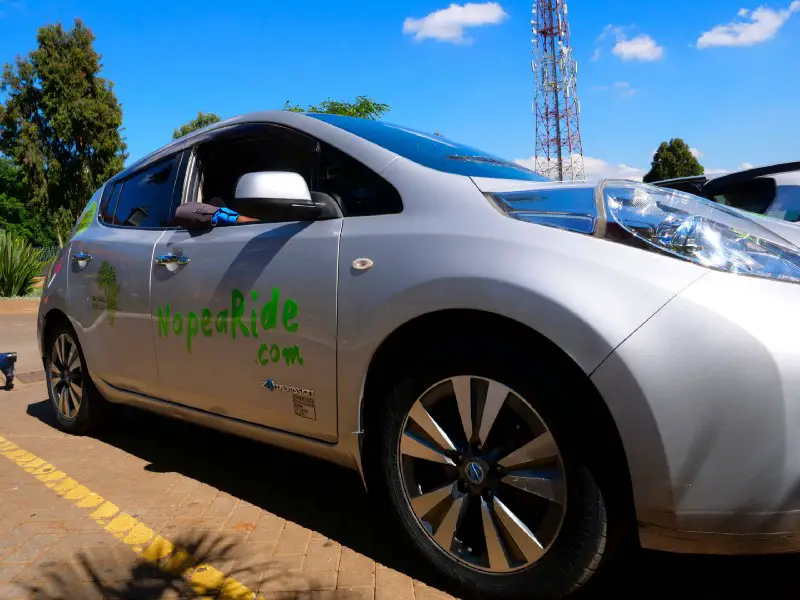
Nopea was launched in Kenya in August 2018 by Finnish company EkoRent. It has so far installed 6 charging stations and chargers in three locations, including the Two Rivers Mall, the Hub Karen, and Thika Road Mall. The Two Rivers Mall (which is open to the Nopea taxi drivers) operates a 12 megawatt solar as the main source, and in case the there's in no solar and the grid power is down then diesel power is used, while Hub Karen has installed a 450-kilowatt solar electric power generating plant. An electric taxi can travel 150 kilometers on a full charge. Nairobi being the capital city of Kenya, it is highly populated hence struggles with air pollution, electric taxis are an opportunity for cleaner transport and also a way to make money.
To help encourage the adoption of electric vehicles, the 2019 finance bill set a reduced excise duty on electric-powered vehicles from 20% to 10%. Earlier in the year(2019), the Kenya Bureau of Standards (KEBS), adopted electric vehicle standards. However, according to CEO of Nopea ride Juha Suojanen, this has not been the case because there are no commercial EVs hence the challenge of determining the cost of EVs, therefore the current duty is still heavy on the importations, there is a need for the government to zero-rate electric cars and capitalize on business opportunities, jobs, and the circular investment to be created by the electric vehicle industry.
Kenyans are open-minded people who are ready to try new things, a reason for having the EV taxis around. Juha expressed confidence in the fact that Kenyans are already conversant with taxi-hailing apps in Nairobi. In case you are wondering how to access their services, you can download the NopeaRide app on Google Play Store, get a ride into the future.
Green environment, clean air, and silent streets are some advantages of driving electric. Since the inception of the EV transportation by Nopea ride, the demand has gone up hence the need for having more, therefore they purpose to have about 40 EVs by April 2020.




